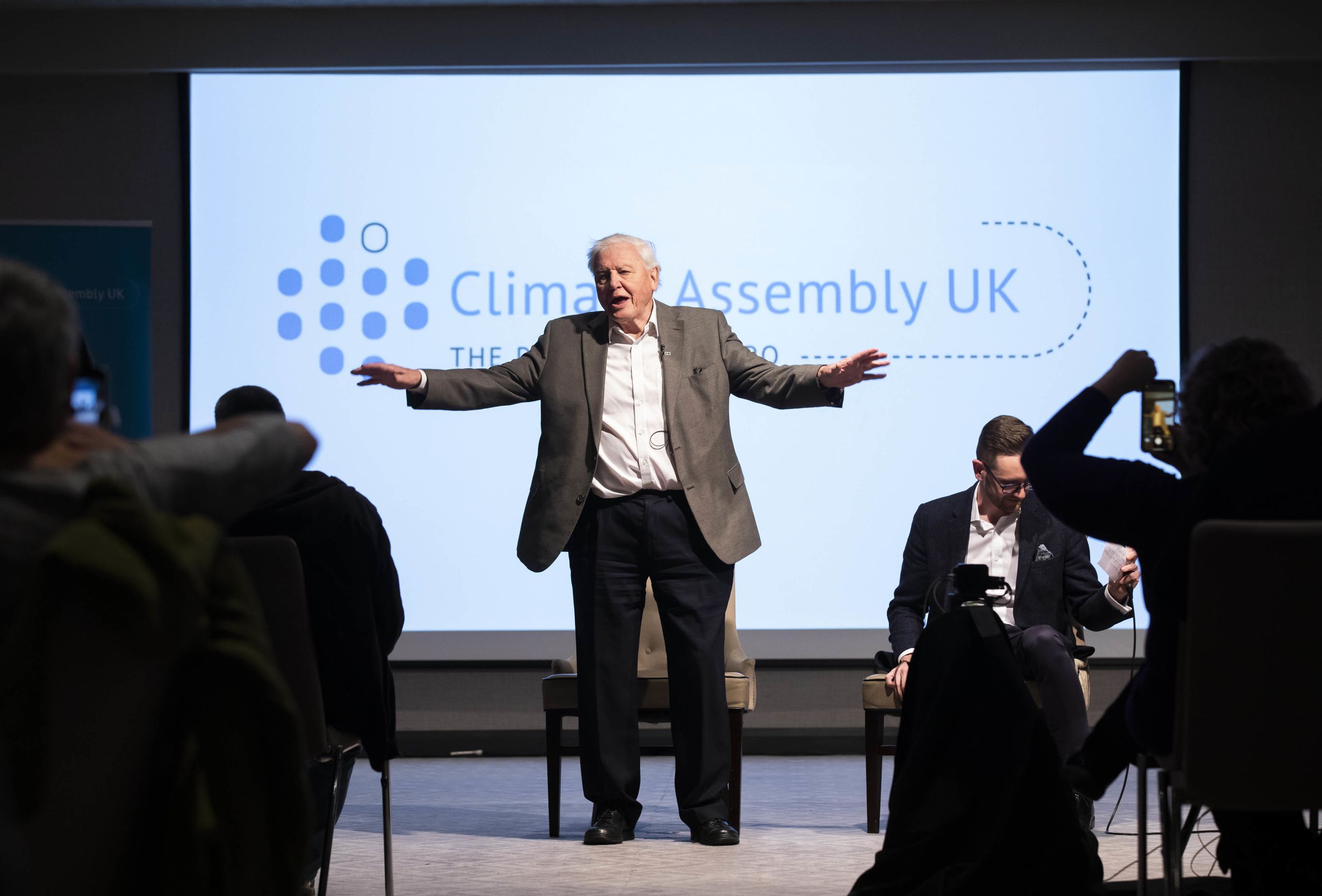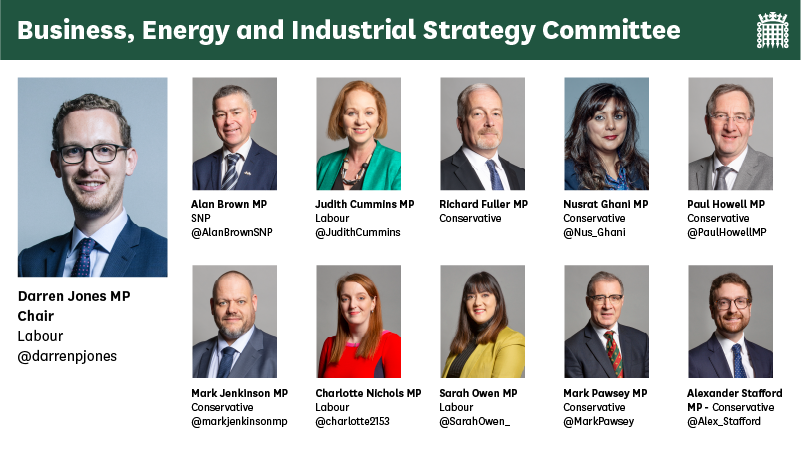Climate Assembly UK:
Where are we now?
We explore how the Government has
responded to the UK's first citizens'
assembly on climate change.

On 10 September 2020, the UK's first citizens' assembly on climate change published their findings.
The Climate Assembly UK was brought together in response to the Government's 2019 commitment to reduce net emissions of greenhouse gases. Their target of reducing emissions by 100% by the year 2050 is generally referred to as 'the net zero target'.
The idea was to bring together members of the public who were representative of the UK as a whole, helping gauge public opinion on a wide range of climate change policies and proposals. They met for six weekends in early 2020.
Climate Assembly UK's report, ‘The path to net zero’, sets out their recommendations in eight key policy areas, including:
- how we travel on land
- how we travel by air
- ways we generate electricity, including offshore wind, onshore wind and solar power
- heat and energy use in the home
- things that we buy
- what we eat and how we use the land
- ways of removing greenhouse gases from the atmosphere
- the covid-19 recovery
The report was welcomed by the Government as a ground-breaking way of engaging the public in policymaking. As a House of Commons Select Committee, we wanted to hold the Government to account, making sure the Assembly's recommendations were taken on board. So right away we launched our inquiry: Findings of the Report of Climate Assembly UK.
Now that nearly ten months have passed since 'The path to net zero' was published, how have Climate Assembly UK's recommendations influenced policy? This is what we heard.
The issues
1.The National Audit Office, the House of Commons Public Accounts Committee, and the Climate Change Committee as well as the Climate Assembly UK report have highlighted how important public engagement is for reaching net zero emissions.
The Government committed to engage with the public on net zero policy, but it hasn’t done enough. As part of its work hosting COP26, for example, there has only been a single public engagement campaign aimed at adults outside the business community. We were particularly struck by the lack of specific plans to engage with those who are no longer in formal education and those who aren't already engaged with these issues.
2.Climate Assembly UK identified 'fairness' as a principle that should underpin the transition to net zero. They said that the impacts of policy change should be distributed fairly across the UK population, and the potential contribution that different parts of the population will be expected to make towards the net zero target should be fair.
Consumers may need to make difficult choices in order to reach the net zero goal. For example, they may need to make investments to improve the energy efficiency of homes, or switch to electric cars. We heard that consumers shouldn't have to make these decisions without help, and that societal systems, such as the food or transport systems, should be structured so that the low-carbon choice is the easy one to choose.
3.We were initially told that the Government would take the time to provide a point-by-point response to the Climate Assembly UK's ambitious report. That is no longer the case. The work that has gone into this is tremendous, and we believe the Minister for Energy, Clean Growth and Climate Change should honour her commitment to provide a full response.


What can be done? Our key conclusions
1.The Government must publish a net zero Public Engagement Strategy, with detailed plans for education and engagement during the transition to net zero.
We endorse the Climate Change Committee's recommendation that the Government should publish a strategy including details of how it will work to engage all segments of the public, including those who are no longer in formal education or those who are disengaged.

2.The Government has said that it will publish a Net Zero Strategy that "will set out the Government’s vision for transitioning to a net zero economy, making the most of new growth and employment opportunities across the UK."
This strategy should include timelines for the implementation of specific policies through to 2050 in order to prepare business, supply chains, and citizens for the changes that will come with achieving net zero. Transparency is key to earning the trust needed for people to be comfortable implementing change in their businesses and personal lives.

3.The Government should publish a point-by-point response to the Climate Assembly UK's report.
The response should detail which recommendations will be accepted in full or in part, and which will be rejected and why. To date, the Government had made a series of promises to engage with public opinion in drafting policy in this area. These promises have not resulted in sufficient action.
A thorough response would be a clear sign of the Government's commitment to engaging with the public during the transition to net zero.
What happens next?

Since September 2020, we've followed the Government's response to Climate Assembly UK's work. We published our findings in a report called ‘Climate Assembly UK: where are we now? on 8 July 2021. The Government has two months to respond to our recommendations. Learn more about our inquiry on our website.
Read more about Climate Assembly UK on its dedicated page on parliament.uk.
The Business, Energy and Industrial Strategy Committee scrutinises the policy, spending and administration of the Department for Business, Energy and Industrial Strategy and its public bodies. These include Ofgem, the Financial Reporting Council and the Climate Change Committee.
Cover image: Climate Assembly UK

